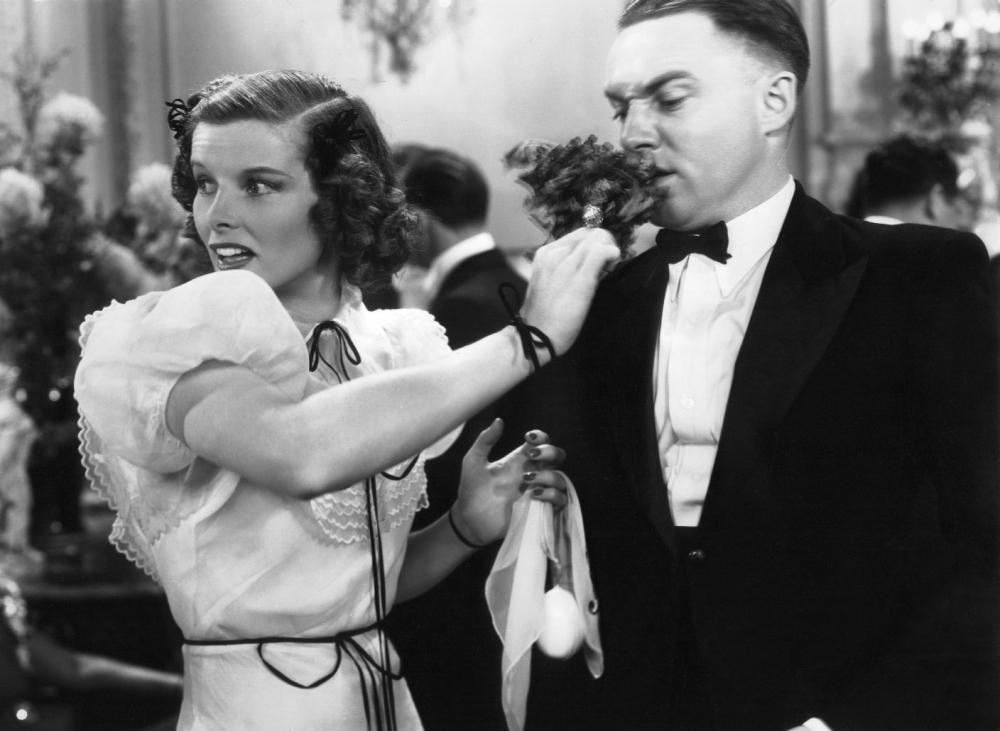1) I fell in love with Herman Wouk after laughing and crying over Inside, Outside more than once. When Jewish Spectacles wrote a post on This is My God, I felt compelled to comment. She mentioned, in response, her recommendation of Marjorie Morningstar to her romantically inclined students as a cautionary tale.
Sounds like Shidduch Lit to me!
Marjorie Morningstar does not plumb the depths of pathos or scale the heights of humor, as Inside, Outside did. After all, Wouk is writing through the perspective of a female teenager, then young woman; Inside, Outside was an semi-autobiographical novel.
Yet I thought he did the job well. Many females felt so, too; Marjorie Morningstar was the bestseller of its time, and does pretty well still (I got my own copy after finishing it).
The book opens with Marjorie, a bright and beautiful 17, greeting the sunny morning after a standard evening of parties and fending off the advances of enraptured boy-men. The plot advances forward from this relatively childish viewpoint as Marjorie learns from her experiences and relationships as to what makes a man worthy.
I don't want to give away the plot, or the many underlying messages, but I can say that love isn't about crushes and fantasies. That's where exposure is so vital—reading, seeing, traveling—exposure allows us to glance beyond our own petty little thoughts and then, from a place of complete knowledge, execute educated decisions.
2) In my last Shidduch Lit post, an anonymous commentator nominated Pulitzer Prize-winning Alice Adams by Boothe Tarkington.
Wow, Alice qualifies for a Brené Brown intervention, stat. I thought insecurity was a new-ish invention, but Alice screams with it. She is so ashamed, seething with self-doubt, and, sadly, that makes her all too relatable.
That shame leads to her lie when no falsehood is needed, to the point she does not know herself. How many of us suffer from that same lack of self-faith that we suppress who we are in the name of acceptance?
Even when that acceptance is not even forthcoming?
 |
| Katherine Hepburn as Alice |
That shame leads to her lie when no falsehood is needed, to the point she does not know herself. How many of us suffer from that same lack of self-faith that we suppress who we are in the name of acceptance?
Even when that acceptance is not even forthcoming?
Re: Alice Adams...when I first read it in my 20's I found the ending to be really sad and tragic. When I reread it in my 30's, I found it still a bit sad but not quite as tragic. Once Alice put aside her silly affectations, her real self emerged and she deserved so much better than Mr. Russell! She had real quality underneath it all, and he crumbled like cardboard at the first sign of societal pressure. This was not something I could fully appreciate as a somewhat naive, romantically inclined younger girl.... Now, after having quite a few disillusioning shidduch experiences, I can appreciate the difference!
ReplyDeleteAlso, kind of like Alice at the end of the book, I recently realized that at a certain point, being an older single in the frum world is a bit freeing. You get used to not fitting in and you realize you don't care that much anymore. Of course, I don't like people looking me over speculatively/pityingly when I'm at a public sort of function (which happens no matter how much other married people deny it, if you haven't experienced it you just don't get it) but I don't feel the need to conform to certain expected standards.
I feel exactly the same way.
ReplyDeleteI was both saddened and inspired by the ending. The previous Alice was living in a fantasy world, believing her obvious acting was fooling anyone. The later Alice doesn't even necessarily regret the loss of Mr. Russel, in that she was not her real self when she dated him.
Because she no longer wants to be a false image, she strongly sails forth into a less secure future, happy in that she can now discover who she is.
I like neat, bow-wrapped happy endings, so while my teenage self within was squealing, "Where's her prince?," my current self is bellowing, "You go, girl!" In youth, happily ever after seems so simple. "Disillusioning shidduch experiences" are very educational, and one does learn more about oneself in the process. The fairy tale ending we have been taught to want morphs into something more real.
The self-aware, older single (I flatter myself) may be an object of pity, but I just don't care about fitting in. I do feel free. I feel fabulous because I am me, I am dating as me, and I won't apologize for it.